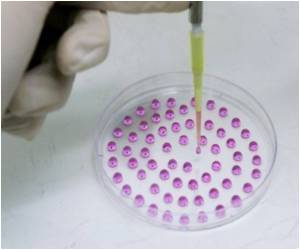
‘Colorectal cancer is the third most common cancer. About 93,000 people are diagnosed with this disease in the United States each year.’
Tweet it Now
The researchers reported that, “Cultured CRC cells harboring KRAS or BRAF mutations are selectively killed when exposed to high levels of vitamin C.”The current study found that colorectal cancer cells with mutations handle vitamin C differently than other cells, and this difference ultimately kills them.
Vitamin C, also called ascorbic acid, becomes oxidized and is transformed into a new compound called dehydroascorbic acid (DHA). Natural antioxidants in the cancer cell attempt to convert the DHA back to ascorbic acid. In the process, these antioxidants are depleted, and the cell dies from oxidative stress. Colorectal cancer is the third most common cancer. Each year, nearly 93,000 people are diagnosed with this disease in the United States. Studies have shown that half of those cases carry either KRAS or BRAF mutations. These mutations are more aggressive and does not respond well to current therapies.
Vitamin C therapy can be used to fight Colorectal Cancer and also other types of the disease driven by KRAS mutations such as pancreatic cancer.
The study is published in the journal Science.
Advertisement














